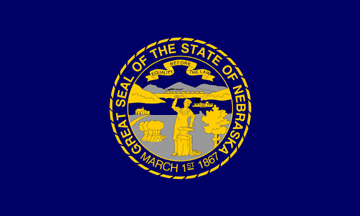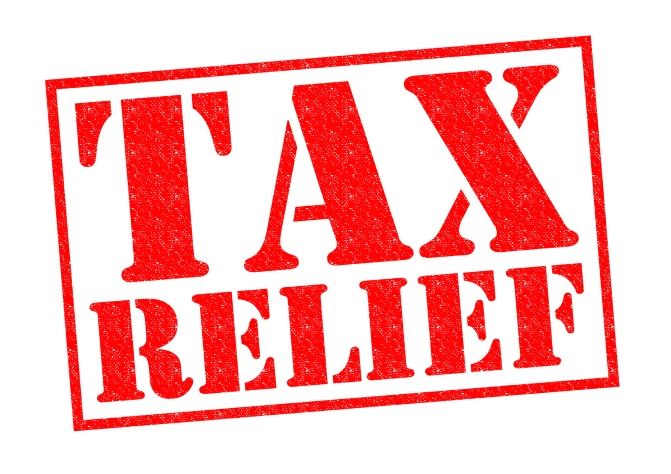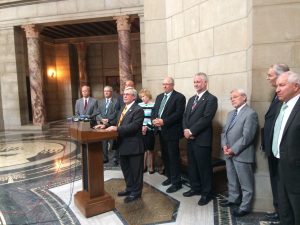NEBRASKA LEGISLATURE
The official site of the Nebraska Unicameral Legislature

Sen. Steve Erdman
District 47
The content of these pages is developed and maintained by, and is the sole responsibility of, the individual senator's office and may not reflect the views of the Nebraska Legislature. Questions and comments about the content should be directed to the senator's office at serdman@leg.ne.gov
July 7th, 2017
In an effort to crack down on voter fraud the Presidential Commission on Election Integrity has requested the names, addresses, birth dates, political party affiliation, military status, and the last four digits of voters’ social security numbers from every state in the union plus the District of Columbia.
The request for releasing voters’ personal information has unleashed a firestorm of controversy across the country. As of last Friday 44 states had denied the commission’s request at least in part or in whole.
The request has also stirred up controversy here in Nebraska. Nebraska State Senators, Kate Bolz and Adam Morfeld, for example, immediately opposed the request, and they have both asked Secretary of State, John Gale, to deny the request. Four other Nebraska State Senators have joined them in opposing the request.
Generally, I oppose the releasing of sensitive, personal data, especially the kind requested by the Presidential Commission on Election Integrity. However, Nebraska State Law actually allows for the release of this kind of information. According to John Gale, our Secretary of State, personal information gleaned from voter registrations may be used for purposes related to elections, political activities, voter registrations, law enforcement, and jury selection. Nevertheless, Nebraska State Law specifically prohibits the releasing of social security numbers. So, John Gale will never release your social security number.
Voter registrations are a matter of public record. Provided that the purposes meet the above criteria, anyone may request voter registration information. However, before you file your request with the Secretary of State, you may want to know that a fee of $500.00 is required and that you will also have to sign an affidavit saying that you will not use the data for commercial or any purposes other than those designated above. Because voter registrations are matter of public record, the Secretary of State is obligated by law to release this information.
John Gale should release Nebraska’s voter registration information. Given the fact that voter registrations are a matter of public record, and given the fact that the Secretary of State is obligated by law to release the voter registration information, and given that the purpose of the Presidential Commission on Election Integrity is to use the information to crack down on voter fraud, I believe John Gale should honor the request of the Presidential Commission on Election Integrity.
John Gale has acted with wisdom and caution. Mr. Gale has asked the Presidential Commission on Election Integrity to provide him with two important pieces of information before releasing the voter registration information. First, Mr. Gale is requiring the commission to submit the required signed affidavit, assuring him that the commission will only use the data for the above stated purposes. Mr. Gale wants the commission to assure him that the data will be used in compliance with Nebraska State Law. Second, Mr. Gale would like the commission to explain how they intend to keep the information secure. For instance, the commission will not be permitted to publish your personal information on a website open to public viewing nor will they be permitted to store the information on an unsecured server. Consequently, I believe Mr. Gale has acted wisely and with caution before releasing your sensitive information to the federal government.

July 5th, 2017
Jeanne Murray from Nebraska’s Senior Health Insurance Information Program (SHIIP) will be in Alliance, Nebraska at the University of Nebraska Box Butte County Extension Office on Monday, July 10. You will find her at 415 Black Hills Ave. Jeanne Murray will be available to help persons new to Medicare in 2017, Medicare and Medicaid beneficiaries with Prescription Drug Plans, and to answer any Medicare or Medicaid questions you may have.
To schedule an appointment, please call Jeanne Murray at 308-632-6554. Please feel to leave a message.
June 30th, 2017

Earlier this year Nebraska State Sen. Burke Harr of Omaha introduced LR 3, which is a legislative resolution to form a task force to redesign Nebraska’s State flag. The resolution was referred to the Reference Committee and was laid over for next year’s Legislative Session.
Nebraska’s State flag has not been getting much love and appreciation lately from the North American Vexillogical Association. They are an organization which ranks flags, and they frequently rank Nebraska’s flag among the five worst state flags in the United States.
The North American Vexillogical Association has offered four reasons why our flag ranks so low. First, they say the Great Seal of Nebraska is too complex to be viewed from a distance. Second, they believe Nebraska’s flag is indistinguishable from 19 other state flags, which also use a gold seal with a blue background. Third, they think references on the flag to the 19th Century detract from the flag’s timelessness. Fourth, they say the writing on our flag detracts from its symbolism.
In order to help demonstrate his point that the Nebraska State flag stands in need of being redesigned, Sen. Harr had officials at the State Capitol building in Lincoln fly the flag upside down for a period of one full week. Apparently, nobody ever noticed that the flag was flying upside down.
Another reason Sen. Harr would like to re-design our flag is because he says nobody ever wears it. The Nebraska State Flag, for instance, is seldom ever displayed on baseball caps, T-shirts, or backpacks. Instead, Sen. Harr would like to re-create a new kind of flag, which would be contemporary, hip, and wearable. He also wants a flag which would distinguish our state from our surrounding states.
I am against LR 3. The main reason I stand against LR 3 is because the project of redesigning our State flag would cost the tax payers of Nebraska approximately $250,000.00. I believe the cost is simply too high. I believe this is a time in our State’s history when lawmakers ought to concern themselves with saving money and cutting spending, not looking for new ways to spend it.
To me, there also seems to be something superficially vain about a state spending a quarter of a million dollars of tax payer monies to redesign a flag. Is flag fashion really so important? LR 3 is nothing short of a bad episode of Project Runway, where the contestants are charged with the task of redesigning the Nebraska State flag and incorporating into their line of clothing for Fashion Week.
Does the opinion of the North American Vexillogical Association really matter so much? Sen. Harr cited their four reasons for redesigning the flag in his resolution. But, why must we cave in to these passive and subtle demands from North America’s #1 flag police?
According to Title 4, of the United States Code, Chapter 1, the American “flag should never be used as wearing apparel.” To wear the flag is to disrespect it. So, why is it acceptable to use our Nebraska State flag as wearing apparel? To the contrary, I believe it is disrespectful to our flag to redesign it so that it may be worn on hats, clothing, and even backpacks.
The Nebraska State flag is an honorable piece of handiwork handed down to us from our Forefathers. Instead of criticism, it deserves our deepest respect. As we salute and honor the American flag this Independence Day, let us also remember to admire and give homage to the flag which represents our great State, and let us continue to do so, especially throughout the remainder of this sesquicentennial year. One last thing, please make sure you never fly it upside down.
June 23rd, 2017
I would like to begin by expressing my gratitude to the various power company employees who restored power to Bayard. After the storm cut off power to more than 80 percent of the city of Bayard on June 12th, it was restored in a very timely fashion. Thank you to all the power company employees for your dedication, hard work, and persistence in getting the job done.
As I have said before, next January I will introduce a constitutional amendment on property tax relief. I am currently working on forming the language for that amendment now. I have been working with several groups, some senators, and even a few select individuals on how to word this amendment.
There are two questions which need to be answered. The first question is a “how much” kind of question: How much property tax relief would be appropriate for our state? In other words, should this be a percentage or should it be a specific dollar amount? Until we know the answer to this question, we really cannot answer the second question.
The second question is a “how to” kind of question: How do we accomplish our goal? There are several options which we are exploring. Some states have gone down this road before us, so we are researching and looking at what these states have done and what the long term effects have been. If there is no need to reinvent the wheel of property tax relief, then we don’t want to waste our time and efforts trying to do it for Nebraska.
I will continue to explore options and hold meetings until we come to a conclusion. Our goal is to find the best solution for Nebraska, and we will press forward until we reach that goal. In the end, we want to make a significant dent in the amount of property taxes we all pay.
We have been talking about property tax relief for at least 40 years. Now it is time to actually do something about it. This is what my constitutional amendment shall accomplish, and this is my solemn vow to you as your representative in the Nebraska State Legislature.

June 19th, 2017
I would like to update everyone about the recent tornados and storm damage that occurred in our Bayard community last Monday. First of all we are so thankful that no one was seriously injured. That is truly a blessing from the Lord. But, another blessing lies in how our community came together. That was amazing! The care and love for others was overwhelming, and I would like to thank all of you who thought of others and reached out to help them in their time of need.
The landscape in Bayard and northeast of town has changed and will never be the same. The storm that came through our community last Monday evening has changed the lives of many! Some have lost farm buildings and homes. Many of the center pivots that were in the path of the storm have been overturned. The debris from the storm that is left in the fields will have to be picked up and removed. Many volunteers have already stepped forward to help in that process, and I’m sure more will be needed as time goes by. Thank you to everyone who stepped in to help their neighbors! Nebraska is the good life, and that was proven last week in the Bayard community by everyone pitching in and helping one another!
My wife and I will never forget this experience. I, like many of you, have seen several tornadoes from a distance, but this was my first experience of having one pass through my yard. Our damage was minor compared to our neighbors. Our prayers are with them. Please be careful as you continue to clean up and move forward with your life.

June 12th, 2017

Nebraska’s Corrections Department is in disarray and stands in desperate need of reform. Last week another inmate from the Tecumseh State Prison died. Daelan LaMere was the fourth inmate to die this year, and he was only 22 years old. Although his official cause of death has not yet been determined, methamphetamines and Ecstasy were found in his bloodstream. The obvious question we should be asking is: How did he obtain these illicit drugs in a medium-maximum security prison?
Drug abuse is a major concern in our prisons. According to a recent press release from Director, Scott Frakes, “More than 80 percent of the prison population has some level of substance abuse issues, which creates an environment of demand.” If we know that demand for drugs and alcohol runs high, how is it that inmates continue to obtain them?
Security at the Tecumseh facility has become much too porous. For instance, the number of alcohol and drug related violations at the Tecumseh facility alone has increased from 200 charges to almost 700 charges within the past year. Somehow alcohol and illicit drugs are finding their way into our medium-maximum security prison, and something has to be done to prevent it.
Some of the problems are internal. Two other inmates died at the Tecumseh prison back in March when 60 inmates took over a housing unit for over three hours. After covering their faces with bandannas, they set fire to mattresses and assaulted other inmates. Just as disturbing, though, was the fact that authorities discovered a large stash of fermented fruit alcohol. Apparently, the inmates had found a way to make their own alcohol inside the prison.
The problems at the Department of Corrections are not limited to drugs and alcohol. In April the Omaha World Herald released findings from their own investigative report, showing that 78 convicted felons had refused DNA testing, which is required by State law. Since the release of their report the number has decreased to 13 inmates who have refused the testing. But, why wasn’t the DNA testing being administered to all of the inmates prior to April?
There is no question that Director, Scott Frakes, inherited a mess to clean up. However, security and discipline, especially at the Tecumseh facility, needs to improve rapidly. Senators on the Judiciary Committee remain baffled by these stories and others, and they are now considering launching their own investigation. The bottom line is that security and discipline in our prisons must improve significantly this year.
June 5th, 2017

When the Nebraska State Legislature debated making cuts in the State Budget to the University of Nebraska system, Don Walton, responded by writing an opinion column in the Lincoln Journal Star newspaper. In his article, he described certain opponents of the budgetary cuts as arguing that the cuts would be “draconian and deeply damaging both to the university and to the state, a cut so deep that it would reverse the university’s upward trajectory and leave permanent scar tissue.” To be sure, I have received e-mails which echo similar sentiments. Therefore, I would like to set the record straight about the budgetary cuts which have been made to the University of Nebraska system.
The University of Nebraska system began the year with a budget of $583 million. The colleges took a mid-year cut of $13 million. The final budget passed by the Nebraska State Legislature carved out another $10 million in cuts. Then, the Governor’s line item veto took another $5.8 million away from the Universities, but spread it out over two years. So, the University of Nebraska system took a total of $26 million in cuts this year.
Last Thursday the Regents of the University of Nebraska approved budgetary cuts estimated at $30 million, which was enough to cover all of these budgetary cuts. At the same time they approved a 5.4 percent tuition increase for the 2017-2018 school year, and another 3.2 percent tuition increase for the 2018-2019 school year.
So, why did the Regents approve these tuition rate hikes? One reason for the tuition rate hikes was to pay for the salary raises approved for the administrators of these schools. For instance, University of Nebraska President, Hank Bounds, received a 6.3 percent salary increase last September, raising his salary from $480,000 to $510,000. Meanwhile, the chancellors each received three percent increases in their salaries. Finally, Hank Bounds’ most recent proposal included a 1.75 percent increase in the NU salary pool for faculty, with increases based upon merit.
On April 3, 2017 University President, Hank Bounds, said that the Legislature’s proposed budgetary cuts would hurt the University of Nebraska’s ability to attract new students and retain faculty. However, last week he projected enrollment to increase by one percent. President Bounds also vowed to trim more than 100 positions from the University of Nebraska system without eliminating any faculty positions.
The fact of the matter is that the University of Nebraska system has been bloated with an abundance of fat available for trimming. According to Nebraska State Sen. Tom Briese of Albion, the University of Nebraska system has been operating at a rate which is 34 percent higher than the national average for public universities.
The University of Nebraska system has plenty of room to make budgetary cuts without eliminating faculty positions or compromising the integrity of its degree programs. For instance, in the past each college has had its own IT center. However, going forward these IT centers will be consolidated into one center, which will serve the entire University of Nebraska system. Besides information technology, similar kinds of cuts will also be made in human resources, financial operations, and travel.
Although the Board of Regents approved tuition rate increases for each of the schools in the University of Nebraska system, the colleges will remain affordable and competitive. Once these tuition rate hikes go into effect, the University of Nebraska will continue to remain a bargain compared to the other Big Ten universities. By way of comparison, the University of Nebraska will continue to rank within the 40th percentile of Big Ten universities.
It has been my pleasure to serve the people of District 47 this year in the Nebraska State Legislature. Now that the Legislative Session has finally come to a close, I thank you for the opportunity to have represented you. Moreover, I look forward to doing much more to bring relief to your property tax burden.
May 24th, 2017
The 2017 Legislative Session ended with no substantial property tax relief in sight. For this reason, I decided that the issue of property tax relief needs to be handed over to Nebraska’s other Legislative House, namely the voters. So, immediately upon last Tuesday’s final adjournment I addressed the media to initiate an effort to amend Nebraska’s Constitution for property tax relief.
In January I will introduce a resolution for a constitutional amendment calling for property tax relief. If the Legislature approves the resolution, the matter will be put on the ballot for the voters to decide in November 2018.
If the Legislature does not approve the resolution next year, I will ask the voters to put it on the ballot by way of a petition drive. This is the more difficult way to go because 130,000 signatures or 10 percent of the electorate would be needed for the petition drive to be successful.
My decision to call for a press conference and to make this announcement was based solely upon the primary concern of my constituents living in Legislative District 47. Folks living in the Panhandle are suffering under an undue load of property taxes. At the time of the press conference on Tuesday I had not been in talks with any lobbyists about a constitutional amendment for property tax relief. However, going forward I will be seeking advice from trusted advisers and I will be working with other Senators about how best to word the resolution I will be introducing next year.
For forty years the legislature has talked about property tax relief, but they’ve never done anything about it. We cannot afford to wait any longer. I did not come to Lincoln to sit on my hands and do nothing. The time to act is now!
May 18th, 2017

Last Monday Governor Ricketts used his line item veto to pare down the State’s biennial budget. This step was necessary due to decreasing revenues coming into the State’s General Fund. State revenues have been down 11.4% overall for the year. Last week the State Legislature upheld each of the Governor’s line item vetoes. Because I believe even more cuts may be coming later this year, I voted to uphold each of the Governor’s line item vetoes.
After analyzing the Governor’s cuts to the budget, though, I became concerned about the impact that these cuts might have on our nursing homes and other critical programs for those who are most in need. So, I investigated the matter for myself. After talking with the Governor, I have since been assured that his budgetary cuts won’t have any adverse effects on our nursing homes. The Governor’s cuts were made to a block appropriation (a lump sum) for the Department of Health and Human Services (DHHS). Consequently, DHHS will not be reducing funding for our nursing homes; instead, areas have been identified where these cuts may be applied on peripheral programs without any debilitating effects on our nursing homes.
The Governor also cut $11.8 million in Medicaid spending for each of the next two fiscal years. This amounts to a 1.40% reduction in Medicaid spending. However, this will not mean that providers will receive across-the-board rate reductions. Again, the cuts were made to a block appropriation for Medicaid spending in the biennial budget. So, when Calder Lynch, the Medicaid Director, testified before the Health & Human Services Committee on May 18, he assured the committee members that Heritage Health would continue to fund all of their programs and services.
The situation is similar for the Division of Developmental Disabilities. Governor Ricketts’ vetoes amount to a 2.12% reduction for each of the next two fiscal years for the Department of Developmental Disabilities (DD). DD received the largest decrease, so it has been charged with the responsibility of managing their programs within their appropriated funds while minimizing adverse effects to critical services and without limiting access to programs for eligible individuals and families. They are now looking for ways to cut spending without eliminating these programs or services.
The Division of Behavioral Health will get a 1.62% reduction for each of the next two fiscal years. Again, this should not be misconstrued as across-the-board reductions. The Division of Behavioral Health will make cuts in non-core programs, such as training, special projects, initiatives, and administrative costs. Critical services will remain intact and will continue to be funded.
Finally, the Division of Children and Family Services will receive a 0.38% reduction for each of the next two fiscal years. This will not result in across-the-board rate reductions. Instead, Children and Family Services (CFS) will manage their appropriated funds in ways which minimize adverse effects to their programs and services. For instance, CFS plans to change how it administers drug testing contracts in order to garner enough savings to survive the Governor’s line item veto.
As you can see, while the Governor made several necessary cuts to our State’s biennial budget by exercising his power of the line item veto, none of these cuts will have any adverse effects on essential programs and services for those who need them. Instead, each of the departments named above are finding ways to cut spending without eliminating essential programs or compromising the quality of their services. I believe this will be good for Nebraska. In the end our State Government will be run with a higher degree of efficiency.
May 12th, 2017
After I read through my copy of this year’s proposed biennial budget, I knew I would have to speak out. I knew long before the proposed budget ever came out that tax revenues would be down this year. I based my conclusions upon what I saw happening in agriculture. Contrary to the opinion of some of my colleagues in the Nebraska Legislature, I know that agriculture is the engine which drives our State’s economy. Commodity prices have been low, farmers have been struggling to pay their property taxes, and agricultural land valuations have unfairly raised the market value of agricultural land for property tax purposes. With these conditions in place, I figured something had to give.
Two weeks ago I spoke out on the floor of the Nebraska Legislature and pointed out the fallacy in the proposed biennial budget. The problem is that the proposed budget assumes a five percent increase in tax revenues. The economist, Thomas Sowell, pointed out this kind of economic fallacy on the federal level back in December 2012 when he said, “The Congressional Budget Office has been embarrassed repeatedly by making projections based on the assumption that tax revenues and tax rates move in the same direction.” They do not. The State’s budget should be based upon real numbers, not projected increases in tax revenues, which are nothing more than speculative and hopeful guesses. Therefore, I made the suggestion that we should resort to using last year’s budget, save for the Department of Corrections and the salaries of State employees.
Last Wednesday my previous comments on the floor were validated by the hard numbers of our most recent tax receipts. Overall, receipts for the General fund are down 11.4%. Bad economic news for the month of April prompted Governor Ricketts to hold a special news conference on Thursday to address the problem of our budgetary shortfall. According to the Governor, tax receipts have fallen short of their projected income 14 out of the last 22 months, and revenues for April fell short of their projected goal by $55.5 million. After the Forecasting Board revised their projections for the year, it was determined that the State would need $835 million over the course of the next two months in order to put us back on track. However, revenues for May and June from the previous year had only brought in $793 million. So, the reality is that our revenues have been going down, not up. Therefore, it makes no sense to continue spending by a budget which assumes a 5% increase in tax revenues.
It is my firm conviction that State Senators will be called back to Lincoln in the fall to reconcile our budgetary problems. If we wait until the fall, as I believe we will, we will be forced to make deep cuts into our State’s budget. All four appropriations bills have now been approved in the State Legislature. Therefore, it is up to the Governor to make the necessary cuts in order to save a special session of the Legislature later this year. Governor Ricketts may use his line item veto to make the necessary cuts in the budget or he may call the Senators back in a few months to fix the problem.

Sen. Steve Erdman
P.O. Box 94604
Lincoln, NE 68509
(402) 471-2616
Email: serdman@leg.ne.gov
- Column (372)
- District Info (8)
- Events (6)
- Opinion (2)
- Press Releases (13)
- Uncategorized (4)
- Welcome (1)
-
Appropriations
Committee On Committees
Rules
Building Maintenance

Streaming video provided by Nebraska Public Media
